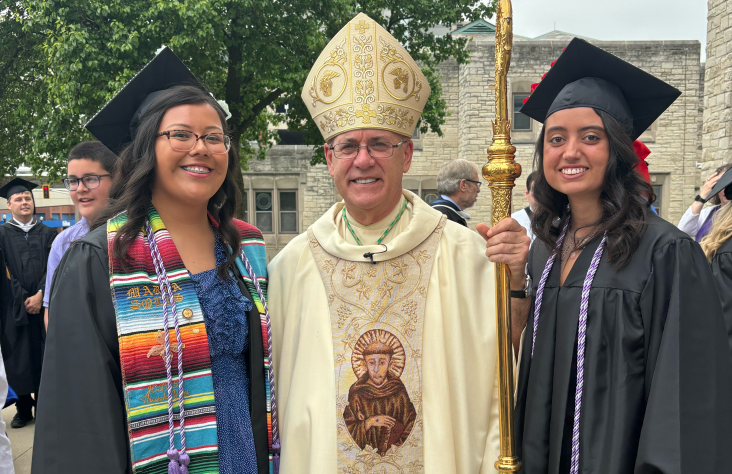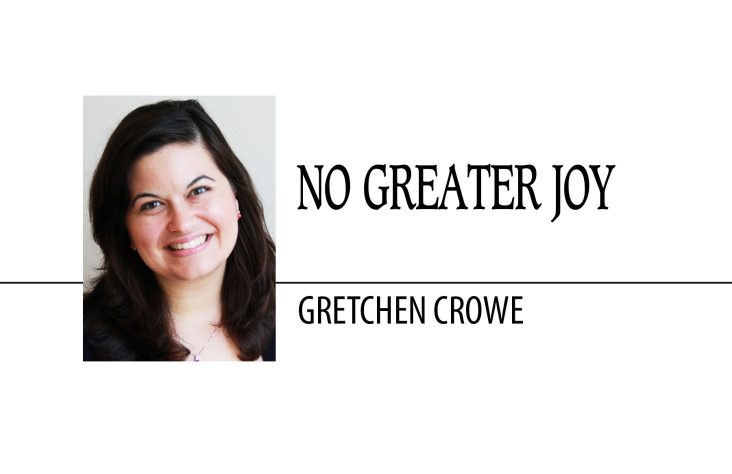August 17, 2016 // Uncategorized
A lesson from dependence: Seeing things differently
By Teresa A. Thomas
Less than five weeks ago, I had a partial knee replacement. I’m on the young side to need this procedure, but family heredity, an extremely active life, many pregnancies and, I suppose, a bit of bad luck all contributed toward the demise of the cartilage in my left knee. I was limping and in pain. According to my doctor, my leg was slightly starting to bow out, which would only make the leg deformed if nothing was done. What’s more, I had gone from a several-miles-a-day walker to barely being able to make it down to the end of the 1,000-foot driveway. Cortisone shots had temporarily eased my symptoms, but that’s what it was doing: easing the symptoms, not solving the problem. It was time to bite the bullet and submit to the long-term solution — surgery to get a new knee.
I am generally anxious about medical procedures but for this one, I was really nervous. I had heard stories that knee replacement recovery took longer than other joint replacements and that the pain was worse. A physical therapist told me that rehab after the operation was not going to be a walk in the park. “If a patient feels pain in physical therapy with a shoulder, for example, we might stop. But with knees we have to have you push through the pain or you won’t regain your mobility. Full healing usually takes about three months.”
Long story short, I discussed options with the doctor, weighed the pros and cons, got my husband’s input (“This is long overdue — do it!”), and got a second medical opinion. On June 24 I entered the hospital and had the surgery done.
Since I’m less than five weeks post-op, I can’t speak of this in a total reflection mode. In many ways I’m still recovering, still doing physical therapy daily. According to the physical therapist, while I am ahead of the timetable of healing, walking and bendability of the knee (— measured in degrees — I’m theoretically not even halfway through. Nevertheless, in this short span I’ve learned a lot, and I’d like to share a few observations and thoughts from these last few weeks.
I can understand why some old people are really grumpy. Like someone who is recovering from major surgery, older people often move slowly, are in pain and are often frustrated at their lack of abilities. They surely must look at people who are breezing through life with health and vitality and pine for the time they had that gift too. When someone with health and vitality complains over something trivial, it must be annoying. Unlike a younger person who is recovering from major surgery, older people cannot look forward to becoming young and fully healthy again. While they may and can improve their muscles and energy to a certain extent, their progressive age limits them permanently. This must be frustrating and depressing.
When you are recovering from major surgery, you become temporarily dependent on your loved ones to help you. In the first week after my surgery, I remember asking one of my family members who was walking toward me if it would be okay to please fetch me a fresh ice bag from the freezer for my knee. I asked nicely and in the sweetest way possible. When this person ever-so-slightly sighed and ever-so-slightly grimaced before saying “OK” and turning around to retrieve the bag, I cringed. I knew this person was annoyed. I also knew I didn’t want to be a burden. I didn’t want to be in a position to ask a favor. I didn’t want to trouble this person, but I couldn’t really get what I needed for myself. It pained me to see that it annoyed my loved one, who may not even to this day know that I noticed that small evidence of exasperation.
If I felt this in my temporary situation, how must an elderly person, who faces dependency and daily help with small things permanently, feel? How must he or she cringe at needing to be helped to the restroom, or aided in getting dressed. And how depressing it must be if an old person has a caregiver who is not kind, or who is not patient? I’d be a lot more than grumpy if this were my lot. No wonder some older people are. Can you blame them?
This surgery and post-surgery experience continues to teach me many things; maybe I’ll share more in a future column. But today I’m mostly pondering on the value of kindness and generosity and of offering a favor with a willing spirit and empathetic, cheerful heart. This temporary physical setback of mine has given me permanent empathy for the elderly. It helped me realize that another’s dependence is an invitation for those near him or her to grow in love. The giver and givee can be gifts to one another.
The best news. Delivered to your inbox.
Subscribe to our mailing list today.





